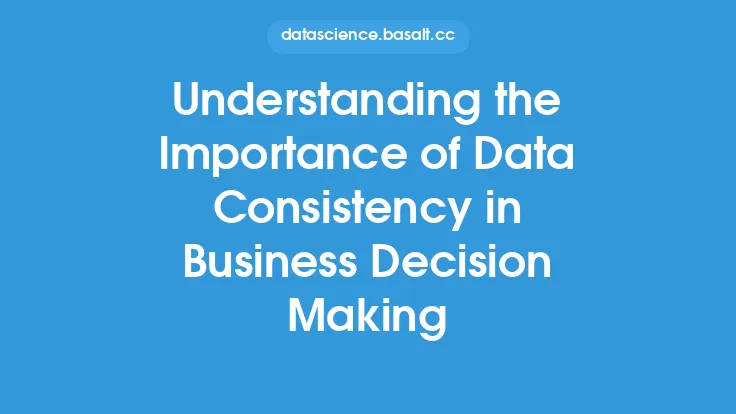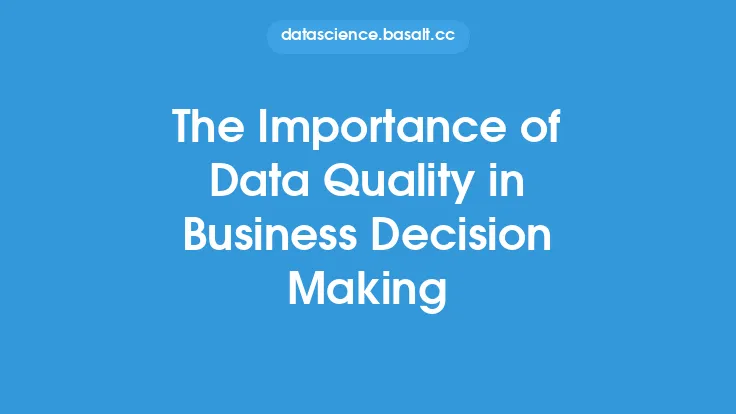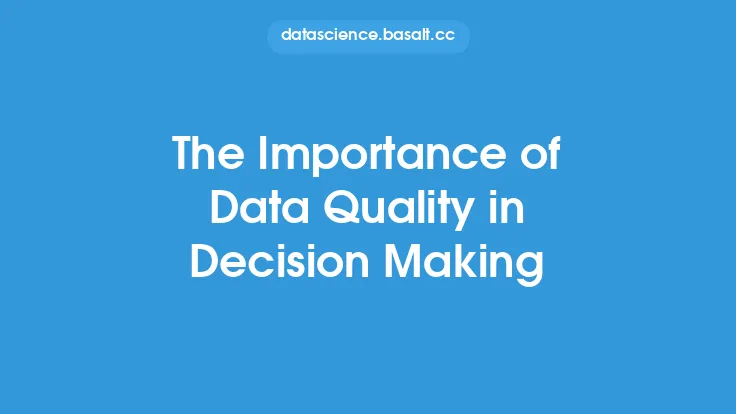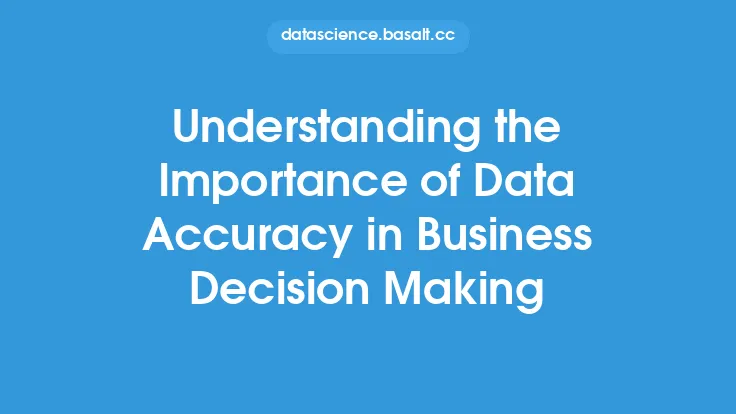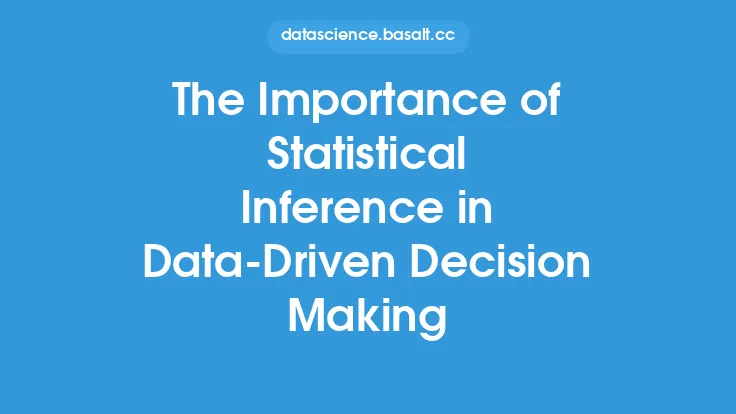In today's fast-paced business landscape, organizations are constantly seeking ways to stay ahead of the competition and make informed decisions. One crucial aspect of achieving this goal is the effective integration of data from various sources. Data integration is the process of combining data from different systems, applications, and sources into a unified view, providing a comprehensive understanding of the business. This process enables organizations to break down data silos, improve data quality, and increase the accuracy of business insights.
What is Data Integration?
Data integration is a critical component of data engineering, as it enables organizations to consolidate data from disparate sources, such as databases, files, and applications, into a single, unified view. This integrated data can then be used to support business decision-making, improve operational efficiency, and enhance customer experiences. Data integration involves several key steps, including data ingestion, data processing, data transformation, and data loading. These steps are critical in ensuring that data is accurate, complete, and consistent across the organization.
Benefits of Data Integration
The benefits of data integration are numerous and well-documented. Some of the most significant advantages include improved data quality, increased data accuracy, and enhanced business insights. By integrating data from various sources, organizations can eliminate data silos, reduce data redundancy, and improve data consistency. This, in turn, enables businesses to make more informed decisions, respond quickly to changing market conditions, and improve their overall competitiveness. Additionally, data integration can help organizations to identify new business opportunities, optimize operations, and improve customer satisfaction.
Data Integration Techniques
There are several data integration techniques that organizations can use to integrate their data, including ETL (Extract, Transform, Load), ELT (Extract, Load, Transform), and data virtualization. ETL is a traditional data integration technique that involves extracting data from source systems, transforming it into a standardized format, and loading it into a target system. ELT, on the other hand, involves extracting data from source systems, loading it into a target system, and then transforming it into a standardized format. Data virtualization, meanwhile, involves creating a virtual layer that integrates data from various sources, without physically moving the data.
Data Integration Tools and Technologies
There are many data integration tools and technologies available, each with its own strengths and weaknesses. Some of the most popular data integration tools include Apache NiFi, Apache Beam, and Talend. These tools provide a range of features, including data ingestion, data processing, and data transformation, and can be used to integrate data from various sources, including databases, files, and applications. Additionally, cloud-based data integration platforms, such as AWS Glue and Google Cloud Data Fusion, provide a scalable and flexible way to integrate data, without the need for on-premises infrastructure.
Data Integration and Business Decision Making
Data integration plays a critical role in business decision-making, as it enables organizations to access accurate and timely data. By integrating data from various sources, businesses can gain a comprehensive understanding of their operations, customers, and markets. This, in turn, enables them to make more informed decisions, respond quickly to changing market conditions, and improve their overall competitiveness. Additionally, data integration can help organizations to identify new business opportunities, optimize operations, and improve customer satisfaction. By providing a unified view of the business, data integration enables organizations to make data-driven decisions, rather than relying on intuition or guesswork.
Data Integration and Data Governance
Data integration is closely tied to data governance, as it enables organizations to ensure that their data is accurate, complete, and consistent. Data governance involves the establishment of policies, procedures, and standards for managing data, and is critical in ensuring that data is handled correctly and securely. By integrating data from various sources, organizations can ensure that their data is consistent and accurate, and that it is handled in accordance with established policies and procedures. Additionally, data integration can help organizations to identify data quality issues, and to implement corrective actions to improve data accuracy and completeness.
Conclusion
In conclusion, data integration is a critical component of business decision-making, as it enables organizations to access accurate and timely data. By integrating data from various sources, businesses can gain a comprehensive understanding of their operations, customers, and markets, and make more informed decisions. The benefits of data integration are numerous, and include improved data quality, increased data accuracy, and enhanced business insights. By using data integration techniques, tools, and technologies, organizations can ensure that their data is accurate, complete, and consistent, and that it is handled correctly and securely. As the business landscape continues to evolve, the importance of data integration will only continue to grow, and organizations that fail to prioritize data integration will risk being left behind.
